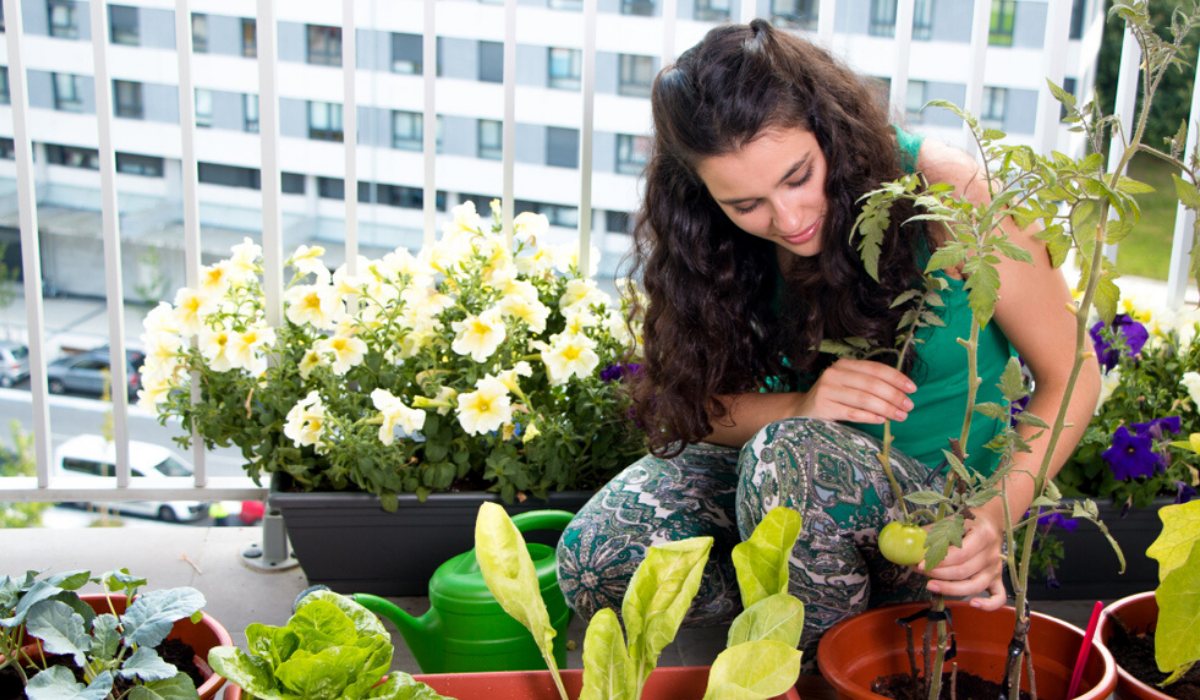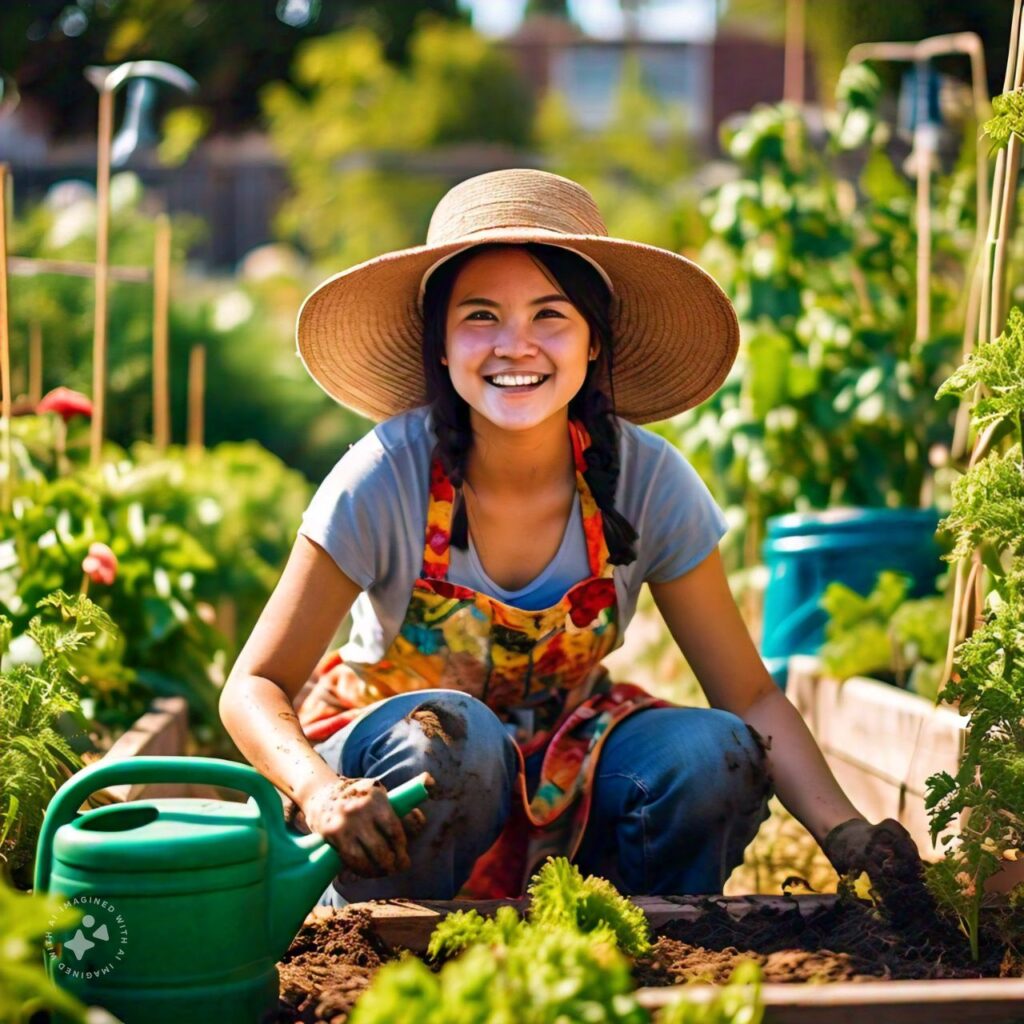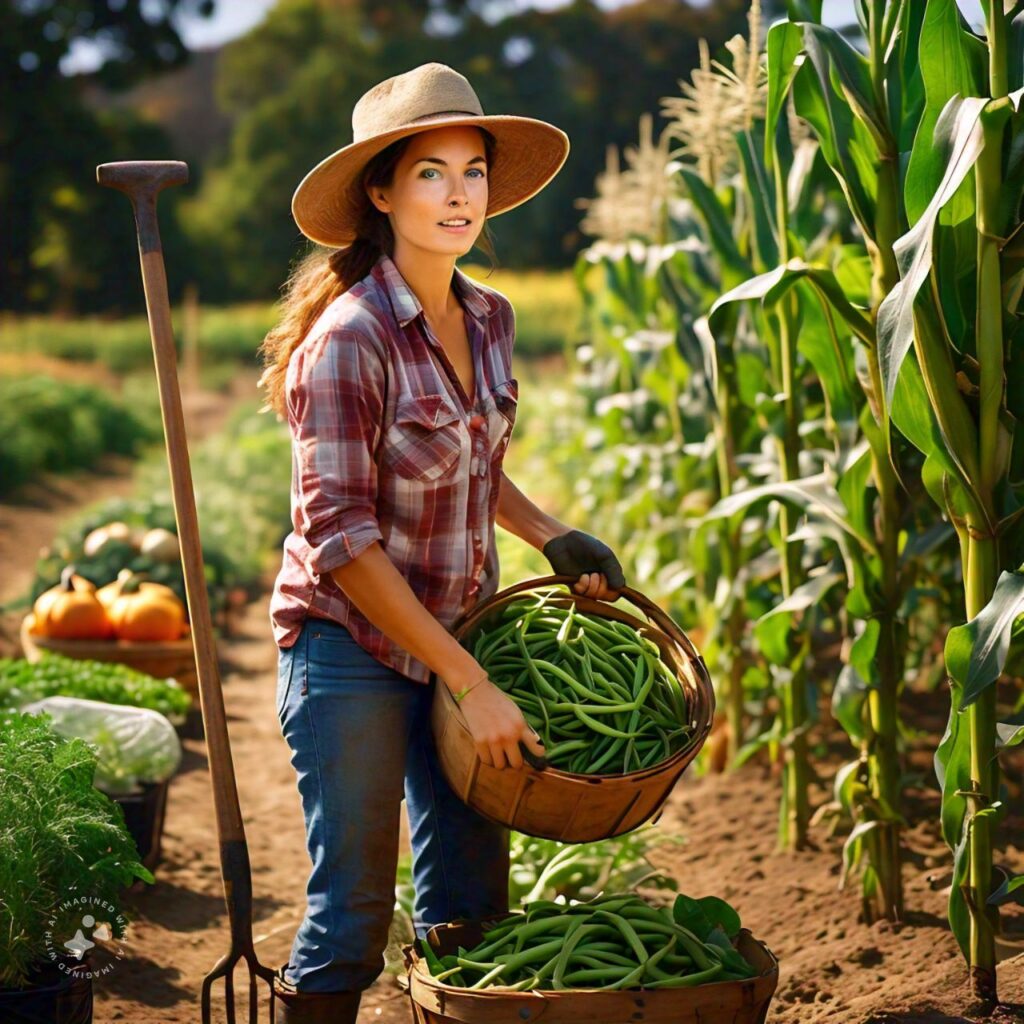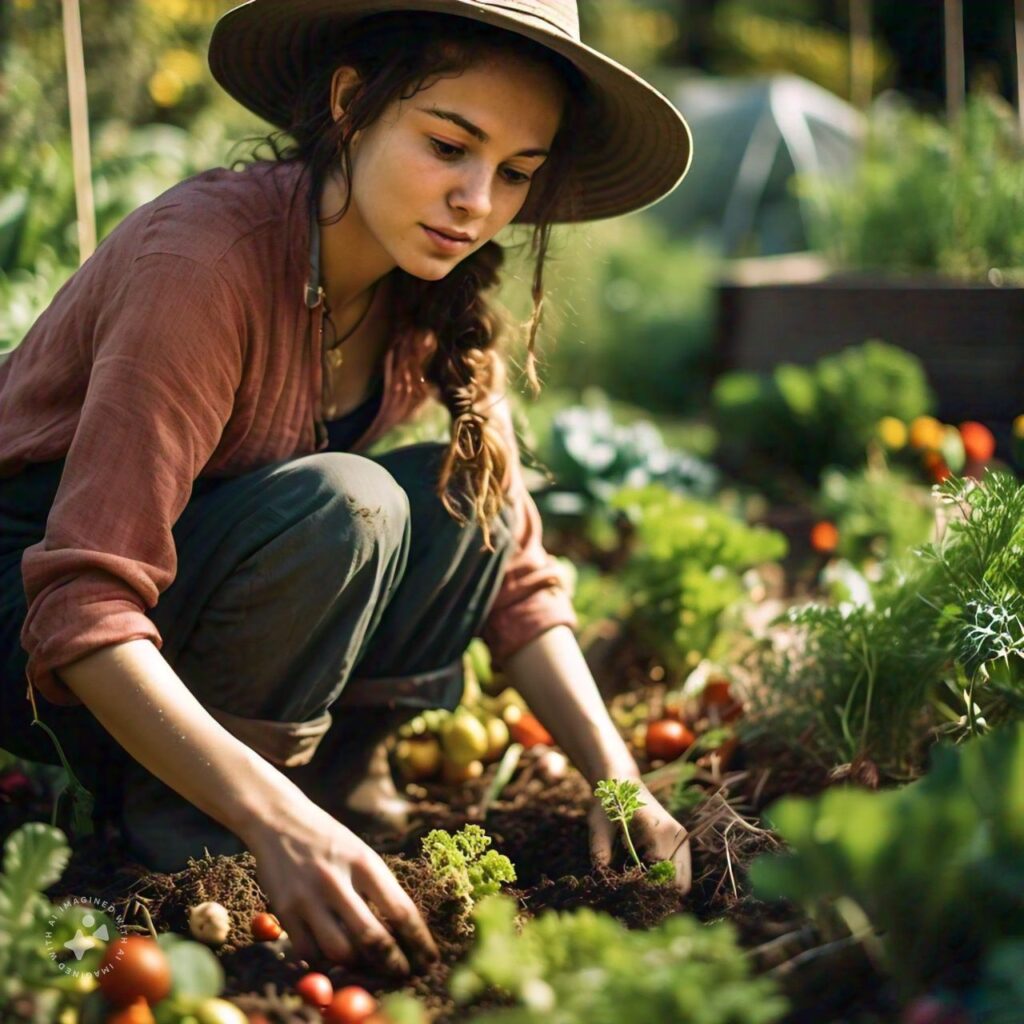In today’s urban environment, apartment gardening has become increasingly popular among city dwellers looking to reconnect with nature. Whether you’re an experienced gardener or just getting started, growing a lush, productive garden in a small space is not only possible but highly rewarding. This guide will take you through the essentials of apartment gardening, from selecting the right plants to optimizing your space for growth.
Benefits of Apartment Gardening
Apartment gardening offers numerous benefits beyond the joy of growing plants. Firstly, it brings the outdoors into your living space, enhancing your home’s ambiance and improving air quality. Additionally, it promotes a sustainable lifestyle by allowing you to grow your own herbs, vegetables, and even fruits, reducing your carbon footprint. Gardening can also be a therapeutic activity, offering stress relief and a connection to nature that is often lost in bustling city life.
Choosing the Right Plants for Apartment Gardens
Selecting the right plants is crucial for success in apartment gardening. With limited space and often low light conditions, it’s essential to choose plants that thrive in your specific environment. Here are some plant types that are well-suited for apartment settings:
Herbs
Herbs are a perfect choice for apartment gardening due to their compact size and ease of care. Varieties such as basil, mint, rosemary, and thyme are not only aesthetically pleasing but also useful for cooking. Most herbs require minimal space and can thrive on windowsills or in small containers.
Vegetables
Growing vegetables in an apartment is not only feasible but also rewarding. Cherry tomatoes, lettuce, spinach, and peppers can grow well in containers or small raised beds. For those with balconies or terraces, vertical gardening is an excellent way to maximize space while growing your favorite vegetables.
Indoor Plants
If you’re looking to beautify your living space, indoor plants like succulents, snake plants, and spider plants are excellent choices. These plants are not only low-maintenance but also act as natural air purifiers, removing toxins from the air.
Edible Plants
For those who want to cultivate a small urban farm, consider growing edible plants like strawberries, microgreens, and radishes. These plants are relatively easy to grow and can provide fresh produce directly from your apartment.
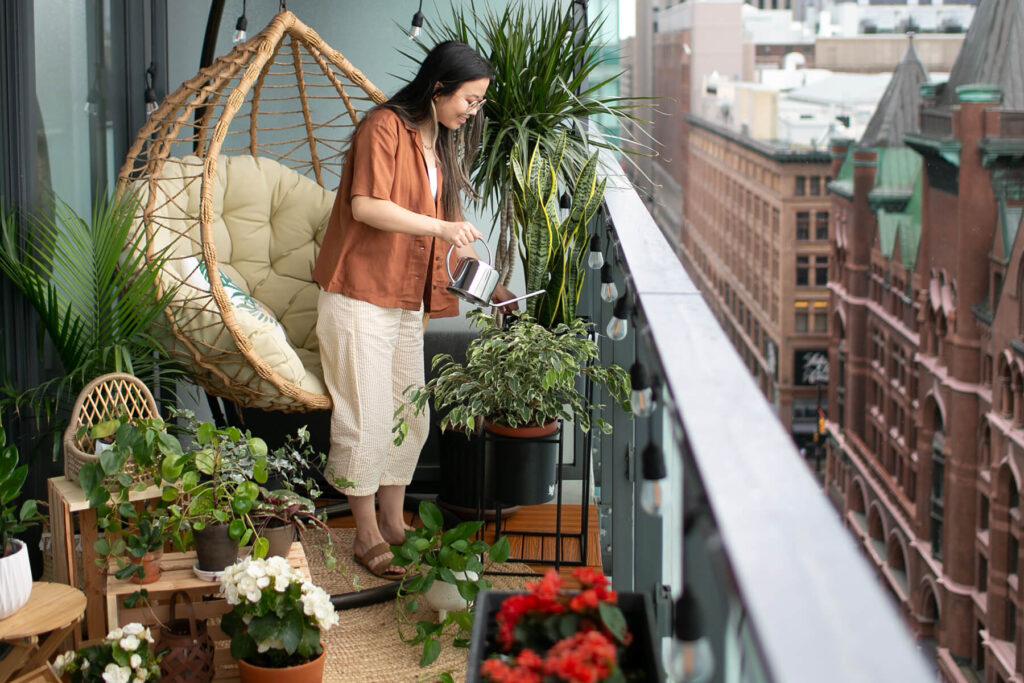
Maximizing Small Spaces for Gardening
One of the main challenges of apartment gardening is limited space. However, with a little creativity, you can transform any small space into a flourishing garden. Here are some tips to help you make the most of your available space:
Vertical Gardening
Vertical gardening is a game-changer for apartment dwellers with limited floor space. By utilizing walls, balconies, or fences, you can grow plants upward rather than outward. Install hanging planters, trellises, or even wall-mounted pots to create a green vertical oasis. This method works particularly well for climbing plants like ivy, beans, or cucumbers.
Container Gardening
Container gardening is one of the most popular methods for growing plants in apartments. Containers come in a variety of sizes, and many plants—such as herbs, flowers, and small vegetables—can thrive in them. Opt for self-watering containers to make maintenance easier, especially if you have a busy lifestyle.
Windowsill Gardening
For those with limited outdoor space, windowsills can provide an excellent growing environment for small plants. Herbs and succulents are perfect candidates for windowsill gardens as they typically require moderate sunlight. Ensure that your windows face the right direction (preferably south or west) to maximize sunlight exposure.
Balcony Gardens
If you have access to a balcony, you have an ideal space for growing plants. Consider setting up a compact garden using tiered shelving, railing planters, or hanging baskets. This will allow you to grow a variety of plants, from flowers to vegetables, in a visually appealing way. Remember to choose sturdy containers that can withstand wind and rain if your balcony is exposed to the elements.
Soil, Light, and Watering Considerations
Understanding the specific needs of your plants is essential for successful apartment gardening. Here’s how to optimize soil, light, and watering conditions for a healthy garden:
Soil
The quality of soil plays a crucial role in plant health. Use high-quality potting mix that offers good drainage and contains the necessary nutrients for plant growth. You can also add organic compost to enrich the soil and improve its fertility. Be sure to choose the right type of soil based on the plants you are growing—some plants require well-draining sandy soil, while others thrive in rich, loamy soil.
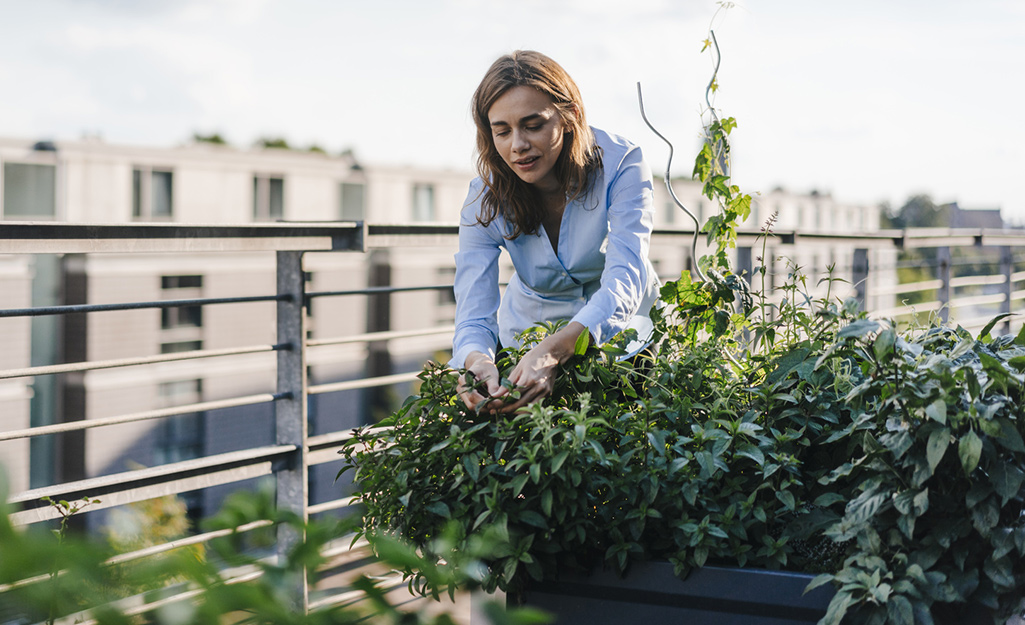
Light
Light is often a limiting factor in apartment gardening. Assess the natural light available in your apartment by observing which direction your windows face. South-facing windows typically receive the most sunlight, making them ideal for sun-loving plants. For spaces with low natural light, consider growing plants that tolerate shade or investing in grow lights to provide the necessary illumination.
Watering
Watering requirements vary depending on the plant species, but as a general rule, apartment gardens should be watered more frequently due to the confined space of containers. However, be mindful not to overwater, as this can lead to root rot. Install drainage holes in all containers to prevent excess water from accumulating.
Sustainable Apartment Gardening Practices
Sustainability is a key principle in modern apartment gardening. By adopting eco-friendly practices, you can reduce waste and promote a healthier environment. Here are some sustainable tips:
Composting
Even in a small apartment, composting is possible. Use a compact compost bin to recycle kitchen scraps and create nutrient-rich compost for your plants. This reduces food waste and provides an excellent natural fertilizer for your garden.
Water Conservation
Water conservation is another important aspect of sustainable gardening. Consider using a drip irrigation system or self-watering containers to minimize water usage. Additionally, collect rainwater using a rain barrel if you have access to an outdoor area like a balcony or terrace.
Organic Gardening
Avoid the use of synthetic fertilizers and pesticides, which can harm the environment and your plants. Instead, opt for organic gardening practices by using natural compost, organic soil, and eco-friendly pest control methods. This will not only promote plant health but also protect beneficial insects and microorganisms.
Common Challenges in Apartment Gardening and How to Overcome Them
While apartment gardening offers many rewards, there are also challenges you may face along the way. Here’s how to tackle some of the most common obstacles:
Limited Light
As mentioned earlier, lack of sufficient natural light can be a significant hurdle for apartment gardeners. Combat this by choosing shade-tolerant plants or supplementing with grow lights to ensure your plants receive adequate light.
Space Constraints
Working with limited space can be challenging, but vertical gardening, container gardening, and windowsill gardening offer practical solutions. Be creative and think outside the box when arranging your garden to make the most of the available space.
Pests
Pests can find their way into even the smallest gardens. To prevent infestations, keep your plants healthy, and regularly check for signs of pests such as aphids or spider mites. Use natural pest deterrents like neem oil or introduce beneficial insects such as ladybugs to keep pests in check.
Conclusion
Apartment gardening is a fulfilling and sustainable way to bring nature into your home, no matter how limited your space. By choosing the right plants, utilizing creative gardening techniques, and practicing eco-friendly methods, you can transform even the smallest apartment into a thriving green sanctuary. With the tips and insights in this guide, you’re well on your way to growing a lush and productive apartment garden that suits your urban lifestyle.
